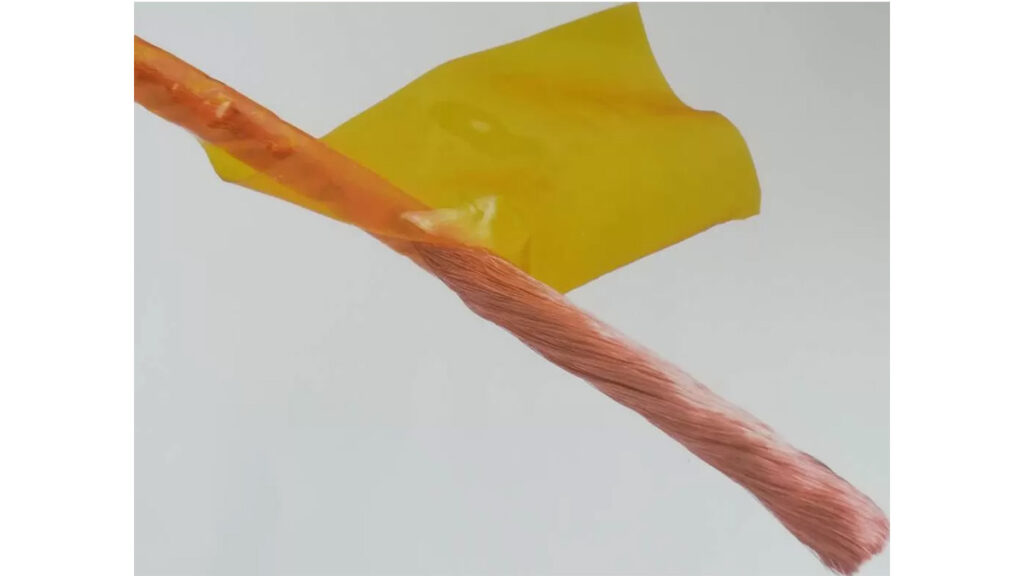DuPont Interconnect Solutions, a unit of DuPont Electronics & Imaging, today announced the results of a recent research study that show Kapton® ECRC polyimide film provides an eight-fold improvement over standard polyimide films for insulating the conductors found in high-performance traction motors designed for the e-mobility market. The new Kapton® product is part of the new corona-resistant wire insulation offerings from DuPont.
The recent research project was funded by the Swedish Energy Agency and led by ABB Sweden, a global leader in the design and production of electrical drives, generators, and integrated digital powertrain solutions. Chalmers University of Technology in Sweden also participated in the research and evaluation project.
The study evaluated the impact of increased electrical stresses caused by high switching frequency converters providing signals with a faster rise of voltage with respect to time (dv/dt) on the conductor insulation materials used in today’s advanced traction motors. The conductor insulation was also exposed, in test conditions, to high temperatures (150 to 180°C) and high voltages (3.0 and 3.5 kV).
According to Dr. Shafigh Nategh, research project leader for ABB, the Kapton® ECRC film outperformed all other candidate materials tested. “We concluded that Kapton® ECRC polyimide films may be considered as proper candidates for the traction motors supplied by high switching frequency converters which are designed and produced for the electrification market,” said Dr. Nategh. “The comparison between non-corona resistant Kapton® FN and the 25 percent thinner corona resistant Kapton® ECRC materials showed that Kapton® ECRC film increased the average life-time of the insulation by about 8 times.”
“The research findings help DuPont better understand the impact of increased switching frequency from inverters on a new generation of corona-resistant Kapton® polyimide film wire insulation,” said Shawn Filliben, Technical Service Senior Consultant for DuPont™ Kapton® films. “This new technology will enable designers to have higher performing thin insulation to compete with historical enamel solutions, and a thinner insulation material will provide an additional degree of design freedom for those looking to create smaller, more reliable motors.”
Dr. Nategh will present the final findings of the ABB/Swedish Energy Agency/Chalmers University study on the reliability and performance of Kapton® ECRC polyimide film at the IEEE Workshop on Electrical Machine Design, Control and Diagnostics (WEMDCD) 8-9 April 2021, in Modena, Italy.
For more than 30 years, DuPont™ Kapton® polyimide films have been successfully insulating conductors to meet evolving needs in a variety of industries, including aerospace and rail applications. Kapton® films have demonstrated improved service and operational efficiencies as compared to conventional insulation materials.
